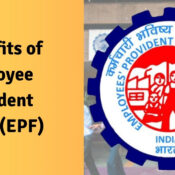Early Escape: Mastering NRI Retirement Before 60
As an NRI, your journey is marked by diverse experiences, cultural shifts, and the pursuit of a better life. Yet, amidst the excitement of living abroad, one crucial aspect demands your attention – retirement planning. Have you ever found yourself pondering questions like when, where, and if you have enough to retire? In this blog, we unravel the complexities of early retirement for NRIs, offering insights and strategies to empower you in the face of life’s uncertainties.
How to save early for Retirement?
Envisioning the perfect retirement may seem elusive, but a carefully crafted retirement plan, particularly one focused on early retirement, serves as a robust shield against life’s unpredictable challenges.
Financial Uncertainty:
In the contemporary world, a discernible shift towards localization and nationalism has unfolded. This transformation is underscored by job reservations favoring locals, coupled with stringent work restrictions for foreigners. The impact of the COVID-19 pandemic has further exacerbated these challenges, creating a pervasive atmosphere of financial uncertainty on a global scale.
For Non-Resident Indians (NRIs), these dynamics necessitate a reevaluation of their personal finances. The risk of downsizing at work looms large, exacerbated by the possibility of not securing another job due to economic or political factors. Careers might unexpectedly be curtailed, or individuals may find themselves on extended breaks. In light of these uncertainties, it becomes imperative for NRIs to proactively plan for retirement well in advance, considering the possibility that retirement may be closer than initially anticipated.
Managing Financial Uncertainty:
If retirement planning has not been a focal point, it is crucial to initiate thoughtful considerations and actions. Begin by assessing the financial requirements for retirement, defining clear goals for this phase of life. Mitigating financial uncertainty involves adopting a disciplined approach to savings, with a keen focus on reducing unnecessary expenses. Diversifying investments across various assets emerges as a pivotal strategy, ensuring optimal returns and resilience against market volatility.
A real-life illustration of this proactive approach is exemplified by Suresh, a 35-year-old marketing manager. Unwilling to spend his career confined to an office cubicle until the age of 60, Suresh made a decision to retire by the age of 45. Calculating the required financial corpus, he prioritized positive cash flow and maintained a well-diversified investment portfolio. Regular reviews of his investments allowed him to fine-tune his strategy according to his personal circumstances and prevailing market conditions.
Complexities in Goals:
Being a Non-Resident Indian (NRI) introduces a myriad of conflicting financial goals, where the desire to enhance one’s lifestyle clashes with the imperative to save money.
The uncertainty surrounding factors such as children’s education, contractual work with no fixed timeline, and the limitations imposed by visas or work permits tied to a specific company adds a layer of complexity to goal-setting for NRIs. The lack of flexibility in job mobility during layoffs or career changes further compounds these challenges, leaving NRIs with limited control over various aspects of their lives.
Managing Complexities in Goals:
The shift abroad often brings an increase in purchasing power, a factor that demands a heightened sense of financial mindfulness. Recognizing that returning to India may afford even greater financial capabilities, it becomes imperative to exercise caution and curb unnecessary expenditures. To ensure a financial corpus that outlasts the individual, NRIs are advised to undertake the following steps:
- Calculate the Retirement Corpus Required: A meticulous assessment of the funds necessary for a secure retirement is This involves a comprehensive evaluation of lifestyle expectations and potential financial needs post-retirement.
- Invest in Assets that Beat Inflation: In a dynamic economic landscape, merely saving is not enough. NRIs should strategically invest in assets that not only preserve but also grow wealth, outpacing the impacts of inflation over time.
- Diversify Income Sources Post-Retirement: Planning for income sources beyond retirement is critical. For those who remain fit, capable, and inclined to work, exploring job opportunities tailored to individual needs becomes a viable option. A real-life example, illustrated by Sneha, a Chartered Accountant, showcases the possibility of post-retirement career transitions. Following voluntary retirement, Sneha engaged in ad hoc projects with a boutique financial firm, striking a balance between occupation, flexibility, and earning potential.
Changes in Tax Structure:
Every year, the tax landscape for Non-Resident Indians (NRIs) undergoes changes, and the recent budget was no exception. The tightening tax net and alterations in investment options add complexity to financial planning for NRIs. The challenge lies in the constant evolution of taxation policies, with potential shifts that can either favor or adversely affect NRIs. Given the unpredictable nature of these changes, it becomes imperative for NRIs to proactively plan their finances to navigate the intricate web of tax implications.
Understanding the Impact of Tax Structure Changes:
The fluctuations in the tax structure can significantly impact the investment portfolio and saving capacity of NRIs. Whether the changes are in favor of or against NRIs, the repercussions are felt directly in their financial planning. To shield their portfolios from the negative effects of taxation policies, NRIs are encouraged to consider early retirement planning. This strategic move not only cushions the impact of tax changes but also provides a buffer to sustain financial well-being.
Considering Future Taxation Policies:
Anticipating potential changes in future tax structures is crucial for NRIs. The uncertainty surrounding whether these changes will align with their interests underscores the importance of a forward-thinking financial approach. NRIs should stay informed about tax updates and be prepared to adjust their financial strategies accordingly.
Country-Specific Considerations:
NRIs must also be cognizant of the taxation policies of the country they currently reside in. Understanding both the tax structure in India and that of their host country allows NRIs to make informed decisions. This awareness is vital for maximizing investment returns and, equally importantly, minimizing taxes on repatriation to India.
Managing Taxation Effectively:
To navigate the complexities of taxation, NRIs are advised to proactively understand the taxation structure in both India and their host country. Financial planning should be crafted to not only maximize investment returns but also strategically minimize taxes on repatriation to India. This dual-pronged approach ensures that NRIs optimize their financial standing amidst evolving tax scenarios.
Unexpected Events:
Life is unpredictable, and unexpected events such as disability, critical illness, or the loss of a loved one can have profound implications for one’s financial well-being. These unforeseen circumstances may even force premature retirement, underscoring the need for proactive financial planning.
Managing the Impact of Unexpected Events:
To safeguard against the financial repercussions of unexpected events, it is imperative to establish financial security as early as possible. A key aspect of this strategy involves purchasing adequate medical insurance not only for oneself but also for loved ones.
Additionally, even financially independent family members should have life insurance coverage to mitigate potential financial burdens. Building an optimal investment portfolio early in one’s financial journey is crucial. This portfolio should align with individual investment abilities, risk tolerance, and retirement goals. By doing so, individuals can fortify their financial position and weather the uncertainties that life may throw their way.
Other Factors:
In addition to the prevailing economic uncertainties and complexities associated with Non-Resident Indians (NRIs), various other factors contribute to the evolving landscape of retirement planning. The absence of social security in old age, coupled with the shift towards nuclear families, reduces dependence on children as traditional support systems. Furthermore, the increasing life expectancy in India adds a dimension of longevity, prompting individuals to seek fulfillment beyond traditional notions of relaxation and family time. Many aspire to travel, embark on new ventures, or simply experience novel facets of life. This desire for a dynamic and enriching post-retirement life underscores the importance of early retirement planning and the accumulation of a substantial financial corpus.
Managing Other Factors:
To effectively navigate these additional considerations, it is essential to align investment strategies with specific goals. Tailoring the choice of currency for investments based on the intended achievement location is crucial. If the goal is situated in India, investing in Indian Rupees (INR) makes strategic sense. Conversely, if the objective is to acquire property in a country like the UK, where the individual currently resides, considering investments in British Pounds (GBP) becomes prudent.
Anticipating the possibility of an NRI early retirement, the key lies in initiating financial planning well in advance. Adopting a proactive stance, the emphasis should be on saving early and saving more. Diversifying investments into instruments that consistently outperform inflation is imperative to safeguard the value of accumulated wealth.
The narrative of job security has undergone significant transformations in recent times, with geopolitical shifts, automation, outsourcing, and localization challenging the traditional concept of long-term job stability. Acknowledging this reality, it becomes increasingly prudent for individuals to proactively prepare for early retirement.
Transforming financial habits and crafting a comprehensive financial plan are essential steps towards ensuring long-term financial security.
The journey towards NRI retirement demands a strategic blend of foresight, adaptability, and proactive financial planning. By unraveling complexities, embracing diverse strategies, and adopting a holistic approach, NRIs can navigate the retirement odyssey with wisdom and secure a prosperous and fulfilling post-retirement life. At PrimeWealth, we are committed to guiding you through every step of this journey, ensuring your financial well-being and empowerment in the face of life’s uncertainties.





